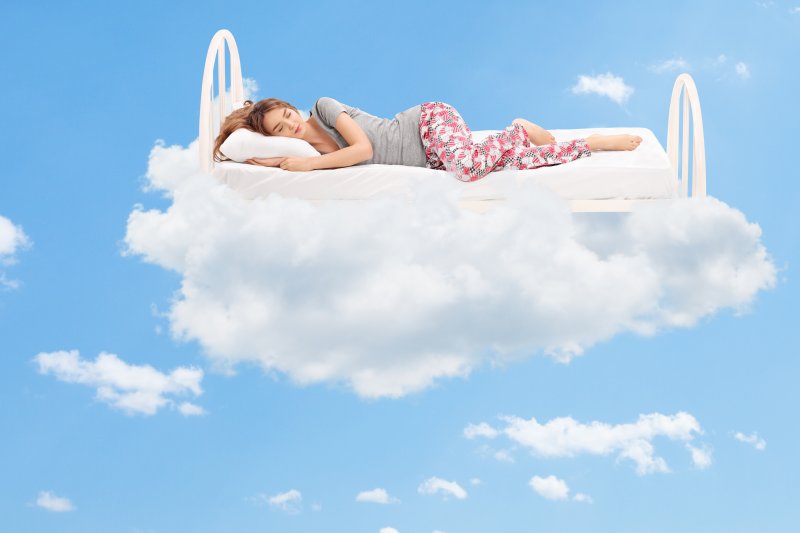
Dreams are a natural part of the sleep cycle. They occur most frequently during REM, or rapid eye movement sleep, a stage of the sleep cycle that occurs within 90 minutes of falling asleep and then every 90 minutes after that. During REM, your brain becomes more active than in any other sleep stage, dreaming and consolidating and processing information from the day before. While your brain is incredibly active during REM, your physical body shuts down to keep you from acting out your dreams.
The entire sleep cycle, and the REM stage especially, is an incredible process that researchers are still studying to fully understand.
But what do dreams look like for obstructive sleep apnea (OSA) sufferers, who wake frequently during the night and may have interrupted sleep cycles? Do they dream differently?
The Effects of Sleep Apnea on Dreaming
There is a bit of seemingly conflicting evidence out there about the impact of sleep apnea on dreams. One study, for example, found that OSA patients with an apnea-hypopnea index, or AHI (used to measure sleep apnea severity), of ≥ 15 had more emotionally negative dreams than patients with an AHI < 5.
However, another study conducted just a year before the one above found that patients with a higher AHI reported a lower recall of nightmares. 52% of the OSA patients reported frequent (at least weekly) dream recall while only 34% reported frequent nightmare recall. This suggests that severe OSA suppresses the ability to remember nightmares.
Taking a Closer Look
At first glance, these two studies may seem to conflict with one another — how can one have more emotionally negative dreams yet recall fewer nightmares? The first study’s researchers tie the findings from the two studies together in an interesting way. In the first study, as sleep apnea severity increased, there was a significant decrease in the range of dream emotions. The researchers hypothesized that, because of the lower range of emotion associated with an elevated AHI, the patients studied may have had fewer negative dreams, even though their average dream unpleasantness did increase alongside AHI.
This decrease in emotional variability might occur, the researchers argued, because the sleep of patients with high AHI is frequently interrupted, throwing off the process of dreaming and preventing dream plots and dream emotions from fully developing. They speculated that the non-nightmare dreams of the high AHI patients in the latter study were lacking a sufficient range of emotion to even produce nightmares; even if, as in the first study, the dreams are emotionally more unpleasant than for low AHI patients.
It’s important to highlight, however, that the first study’s researchers believe that because a polysomnographic assessment, or sleep study, was not a part of the second study, the explanation of sleep fragmentation cannot be confirmed, but it does call for more research on the matter.
To wrap everything up, these two studies in combination may point to sleep apnea sufferers experiencing a lower gamut of emotions during their dreams than those without sleep apnea, causing fewer nightmares. However, the dreams that those with sleep apnea do remember seem to be more emotionally negative depending on the severity of the apnea.
Why This Matters
Studying nightmares, dream emotions, and their connection with sleep apnea is significant because as the researchers of the first study point out, nightmares can actually be a clinical issue that have the potential to negatively affect someone’s quality of life. For OSA sufferers, nightmares and the fear of nightmares may worsen their already-existing lack of quality sleep and therefore, their clinical wellbeing. In conclusion, it’s well-known that sleep apnea has marked impacts on a person’s physical, emotional and mental health — and its effects on dreams, in particular, should also be considered. It’s critically important for people with sleep apnea to seek medical care. Ready to start the journey to better sleep and maybe even better dreams? Schedule a free consultation at Sleep Better Georgia today.
